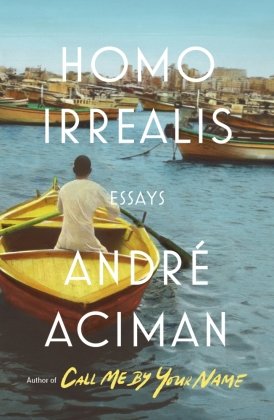Homo Irrealis - Essays. Nominiert: PEN Literary Award - Finalist, 2022. Nominiert: Kirkus Reviews Best Books of the Year, 2021
| Verlag | Macmillan US |
| Auflage | 2021 |
| Seiten | 256 |
| Format | 14,8 x 1,7 x 21,2 cm |
| Gewicht | 263 g |
| Artikeltyp | Englisches Buch |
| EAN | 9780374603724 |
| Bestell-Nr | 37460372EA |
The New York Times-bestselling author of Find Me and Call Me by Your Name returns to the essay form with his collection of thoughts on time, the creative mind, and great lives and works
Irrealis moods are a category of verbal moods that indicate that certain events have not happened, may never happen, or should or must or are indeed desired to happen, but for which there is no indication that they will ever happen. Irrealis moods are also known as counterfactual moods and include the conditional, the subjunctive, the optative, and the imperative-all best expressed in this book as the might-be and the might-have-been.
One of the great prose stylists of his generation, André Aciman returns to the essay form in Homo Irrealis to explore what time means to artists who cannot grasp life in the present. Irrealis moods are not about the present or the past or the future; they are about what might have been but never was but could in theory still happen. From meditations on subway poetry and the temporal resonances of an empty Italian street to considerations of the lives and work of Sigmund Freud, C. P. Cavafy, W. G. Sebald, John Sloan, Éric Rohmer, Marcel Proust, and Fernando Pessoa and portraits of cities such as Alexandria and St. Petersburg, Homo Irrealis is a deep reflection on the imagination's power to forge a zone outside of time's intractable hold.
Rezension:
"Aciman's latest conveys with grace and insight his longing to apprehend 'myself looking out to the self I am today.' A resplendent collection from a writer who never disappoints." -Kirkus Reviews
"One feels that if Proust had not existed, Mr. Aciman would have invented him." -Richard Bernstein, The New York Times
"André Aciman is, quite simply, one of the finest essayists of the last hundred years." -Susan Salter Reynolds, Los Angeles Review of Books

